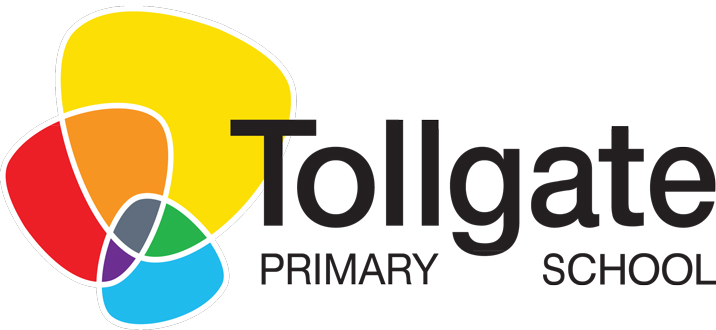Early Years Foundation Stage
At Tollgate the aim of the “Early Years Foundation Stage” is to ensure that all children are given the opportunity to reach their full potential educationally, emotionally and physically. We provide pupils with a learning environment that encourages them to pursue their own interests, ideas and challenges.
The early years of a child’s life are an important stage where the foundations for future development are established. In the Foundation Stage, we foster the child’s needs and stages of development and offer learning which extends, enriches and develops the unique child.
Providing creative and contextual opportunities for children to develop, consolidate and deepen their knowledge, understanding and skills.
Purposefully planned, playful activities and first hand experiences are the key to learning, laying the foundations for the Early Years Foundation Stage Curriculum.
The expectations and delivery of the curriculum is flexible ensuring there is a balance between structured, unstructured, and adult led and child led learning.
The Framework is based on four guiding principles which help to shape the Early Years Foundation Stage Policy.
- A Unique Child
- Positive Relationships
- Enabling Environments
- Learning and Development
The curriculum is carefully planned to ensure progression and continuity of skills in seven areas of learning. All areas of learning and development are important and interconnected. The three prime areas reflect the key skills and capacities all children need to develop and learn effectively in order to be ready for school. There are three prime areas:
- Communication and Language
- Physical Development
- Personal, Social and Emotional Development
There are also four specific areas through which the prime areas are strengthened and applied:
- Literacy
- Mathematics
- Understanding the World
- Expressive Arts and Design
In planning and guiding children’s learning, staff must reflect on the different ways that children learn and reflect these in their practice. Three characteristics of effective teaching and learning are:
Playing and Exploring – children investigate and experience things and ‘have a go’;
Active Learning – children concentrate and keep on trying if they encounter difficulties, and enjoy achievements;
Creating and Thinking Critically – children have and develop their own ideas, make links between ideas, and develop strategies for doing things.
The Early Years Foundation Stage consists of seven areas of learning and development. Each area is linked to the standards as set out in Early Years Framework 2021, which children will achieve and exceed by the end of the Early Years Foundation Stage.
Communication and Language Development involves giving children opportunities to experience a rich language environment; to develop their confidence and skills in expressing themselves; and to speak and listen in a range of situations.
Physical Development involves providing opportunities for young children to be active and interactive; and to develop their co ordination, control and movement. Children must also be helped to understand the importance of physical activity and to make healthy choices in relation to food.
Personal, Social and Emotional Development involves helping children to develop a positive sense of themselves and others; to form positive relationships and develop respect for others; to develop social skills and learn how to manage their feelings; to understand appropriate behaviour in groups; and to have confidence in their own abilities.
Literacy Development involves encouraging children to link sounds and letters and to begin to read and write. Children must be given access to a wide range of reading materials (books, poems, and other written materials) to ignite their interest.
Mathematics involves providing children with opportunities to develop and improve their skills in counting, understanding and using numbers, calculating simple addition and subtraction problems; and to describe shapes, spaces and measures.
Expressive Arts and Design involves enabling children to explore and play with a wide range of media and materials, as well as providing opportunities and encouragement for sharing their thoughts, ideas and feelings through a variety of activities in art, music, movement, dance, role play, and design and technology.
Understanding the World involves guiding children to make sense of their physical world and their community through opportunities to explore, observe and find out about people, places, technology and the environment.

